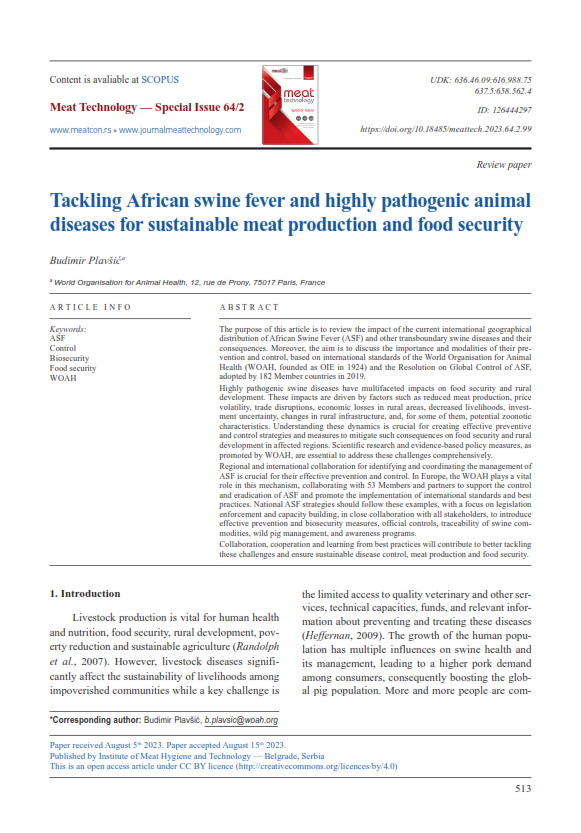Tackling African Swine fever and highly pathogenic animal diseases for sustainable meat production and food security
Abstract
The purpose of this article is to review the impact of the current international geographical distribution of African Swine Fever (ASF) and other transboundary swine diseases and their consequences. Moreover, the aim is to discuss the importance and modalities of their prevention and control, based on international standards of the World Organisation for Animal Health (WOAH, founded as OIE in 1924) and the Resolution on Global Control of ASF, adopted by 182 Member countries in 2019.
Highly pathogenic swine diseases have multifaceted impacts on food security and rural development. These impacts are driven by factors such as reduced meat production, price volatility, trade disruptions, economic losses in rural areas, decreased livelihoods, investment uncertainty, changes in rural infrastructure, and, for some of them, potential zoonotic characteristics. Understanding these dynamics is crucial for creating effective preventive and control strategies and measures to mitigate such consequences on food security and rural development in affected regions. Scientific research and evidence-based policy measures, as promoted by WOAH, are essential to address these challenges comprehensively.
Regional and international collaboration for identifying and coordinating the management of ASF is crucial for their effective prevention and control. In Europe, the WOAH plays a vital role in this mechanism, collaborating with 53 Members and partners to support the control and eradication of ASF and promote the implementation of international standards and best practices. National ASF strategies should follow these examples, with a focus on legislation enforcement and capacity building, in close collaboration with all stakeholders, to introduce effective prevention and biosecurity measures, official controls, traceability of swine commodities, wild pig management, and awareness programs.
Collaboration, cooperation and learning from best practices will contribute to better tackling these challenges and ensure sustainable disease control, meat production and food security.





